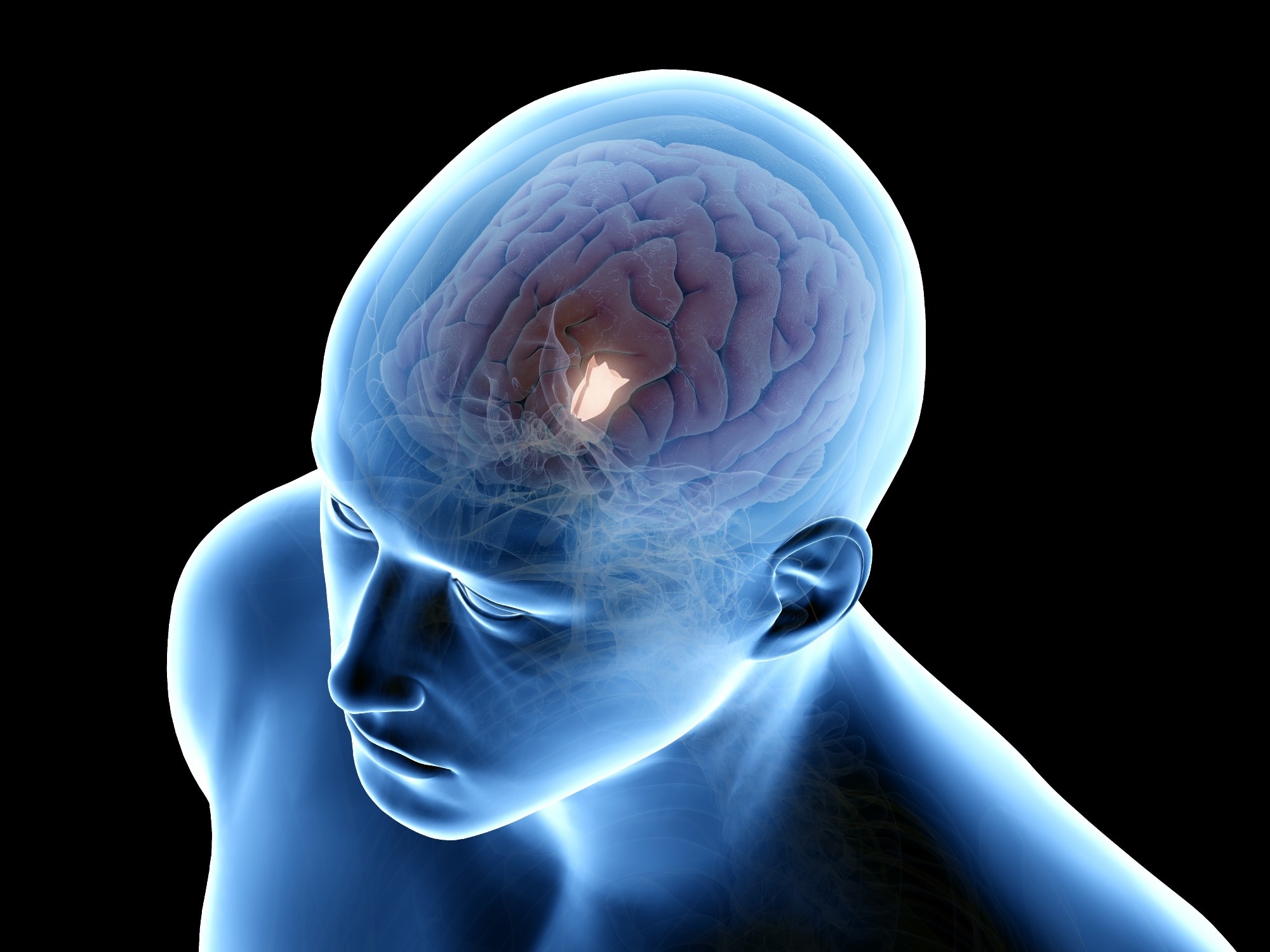In a recent study published in the journal PLoS Biology, researchers from the University of Xiamen, China, explored the role of the hypothalamic menin in driving aging and associated cognitive decay.
 Study: Hypothalamic Menin regulates systemic aging and cognitive decline. Image Credit: SciePro / Shutterstock
Study: Hypothalamic Menin regulates systemic aging and cognitive decline. Image Credit: SciePro / Shutterstock
Background
Aging is characterized by the progressive deterioration of physiological functions, leading to the end of an organism's lifespan. The hypothalamus is a critical central regulator of the aging process. Particularly, neuroinflammatory IkappaB kinase (IKKβ)/nuclear factor kappa B (NF-κB) signaling in the ventromedial region of the hypothalamus (VMH), which regulates the pace of aging.
However, the underlying mechanisms driving aging and age-associated cognitive decay have not been well-characterized. The present study's authors reported that the multiple endocrine neoplasia type 1 (MEN-1; menin) proteins interact with the p65 molecule to block the NF-κB pathway and thus block associated neuroinflammation.
About the study
In the present review, researchers investigated whether menin is an upstream determinant for age-related neuroinflammatory processes in the ventromedial hypothalamus.
The team characterized age-associated alterations in menin levels using C57BL/6 murine animals. Subsequently, menin expression among steroidogenic factor-1 (SF-1) neurons of the ventromedial hypothalamus was selectively manipulated to evaluate its effects on aging and cognition, following which neuroinflammatory cascades were investigated.
The team examined the trends in menin expression at seven regions of the brain of young and aged mice. Menin was co-immunostained with ionized calcium binding adaptor molecule (Iba1), steroidogenic factor 1 (SF-1), and glial fibrillary acidic protein (GFAP); consequently, (SF1) Cre Men1f/f conditional knockout mice (ScKO) were generated. Beta–galactosidase (β-Gal) staining was performed on the mice's hepatic, cardiac, muscular, and hypothalamic tissues.
Cognitive decline as an aging phenotype was assessed using the Morris water maze and electrophysiological characterization of synaptic functions in hippocampal CA1 regions. Cre recombinase-dependent virus (AAV-CAG-Cre) was injected into the VMH of Men1f/f and wild-type (WT) mice to delete menin from the VMH region specifically.
Next-generation sequencing was performed to identify differentially expressed genes (DEGs) in the ventromedial region of 13 ScKO and control mice. Further, H3K4me3 chromatin immunoprecipitation (ChIP) assays were performed. D-serine levels were assessed using enzyme-linked immunosorbent assays (ELISA).
Results
Omics eBook

Menin levels were reduced in the aged C57BL/6 mice, correlating with aging and age-associated cognitive impairments. Restoring menin levels in the ventromedial hypothalamus of the aged murine animals increased their lifespan, enhanced memory and learning, and boosted age-associated biomarker levels. In contrast, menin inhibition in the ventromedial hypothalamus of the middle-aged C57BL/6 mice resulted in accelerated aging and cognitive decay. Further, menin epigenetically regulated neuroinflammation and the metabolism of proteins such as D-serine.
Lower menin levels with advancing age impaired D-serine release from the ventromedial hypothalamic-hippocampus neuronal circuits. Menin knockdown also lowered synaptophysin and the post-synaptic density protein-95 (PSD-95) expression and decreased dendritic density in the hippocampus.
In contrast, D-serine supplementation reduced cognitive decay, reversed metabolic disorders, and hippocampal synaptophysin and PSD-95 expression among aged and ScKO murine animals. The team confirmed the efficiency of menin elimination from SF-1 VMH neurons using real-time polymerase chain reaction (rt-PCR), immunostaining, and western blot analyses.
The lifespan of ScKO mice was significantly reduced compared to controls, and the mice exhibited age-associated phenotypes such as the reduced size of muscle fibers, reduced mass of bone, decreased thickness of skin, cross-linking of tail tendon collagen, and expression of clock genes.
In addition, irregular metabolic circadian rhythms increased deoxyribonucleic acid (DNA) methylation levels, food consumption, neuroinflammation, and thickness of ventricular muscles were observed with advancing age. Menin levels were reduced in the pituitary, adrenal, spleen, and sexual glands. AV-CAG-Cre-Men1f/f mice showed similar results to ScKO mice.
The findings indicated that menin deficiency in the hypothalamus probably accelerated the aging process by enhancing inflammation in the hypothalamus. Reduced D-serine in the menin deletion condition was induced by phosphoglycerate dehydrogenase (PHGDH) decline.
Menin partially contributed to the epigenomic modulation of gene expression through its association with the H3K4me3 modification. Menin was bound to the phgdh promoter region and facilitated chromatin remodeling for phgdh transcription, which mediates D-serine formation.
D-serine reduction played a critical role in cognition decay, and its complement could reduce cognitive impairments among aged and ScKO mice. The electrophysiological analysis showed a considerable decrease in high-frequency stimulation-induced long-term potentiation among ScKO mice. Travel distances significantly improved among aged mice with menin overexpression, but the speed of swimming was not significantly different among the groups of murine animals.
In the analysis, 681 DEGs were identified, including the Acyl-CoA Oxidase 2 (Acox2), beta-1,3-N-acetylglucosaminyltransferase (B3gnt5), UDP glucuronosyltransferase family 1 member A6 (Ugtla6a), and pyruvate kinase L/R (Pklr) genes. With the greatest metabolic disturbance in the differential Jacobian metabolomics, for the nicotinamide adenine dinucleotide (NADH) to KEG reaction rate elasticity.
Overall, the study findings showed that VMH menin regulates the process of aging and associated cognitive impairments.
- Leng, L. et al. (2023) "Hypothalamic Menin regulates systemic aging and cognitive decline," PLOS Biology, 21(3), p. e3002033. doi: 10.1371/journal.pbio.3002033, DOI: https://doi.org/10.1371/journal.pbio.3002033, https://journals.plos.org/plosbiology/article?id=10.1371/journal.pbio.3002033
Posted in: Men's Health News | Medical Research News | Medical Condition News | Women's Health News
Tags: Adenine, Aging, Biomarker, Bone, Brain, Calcium, CHIP, Chromatin, Collagen, Cross-Linking, DNA, ELISA, Endocrine, Enzyme, Food, Frequency, Gene, Gene Expression, Genes, Hippocampus, Hypothalamus, Immunoprecipitation, Inflammation, Kinase, Knockout, Metabolic Disorders, Metabolism, Metabolomics, Molecule, Multiple Endocrine Neoplasia, Multiple Endocrine Neoplasia Type 1, Muscle, neoplasia, Neurons, Phenotype, Polymerase, Polymerase Chain Reaction, Promoter, Promoter Region, Protein, Serine, Skin, Spleen, Swimming, Transcription, Virus, Western Blot

Written by
Pooja Toshniwal Paharia
Dr. based clinical-radiological diagnosis and management of oral lesions and conditions and associated maxillofacial disorders.
Source: Read Full Article






